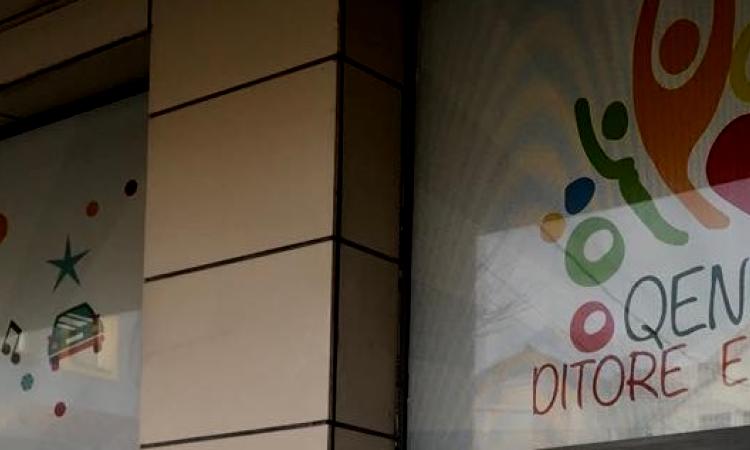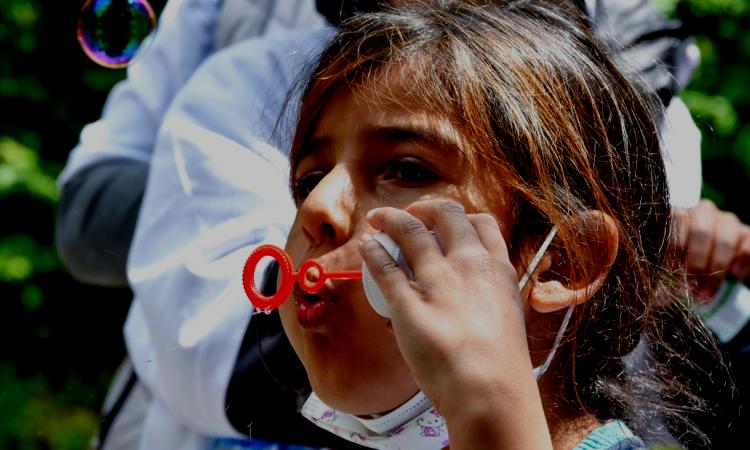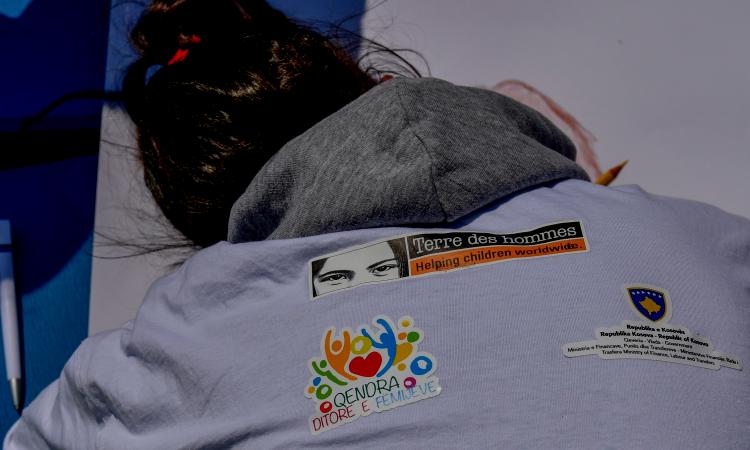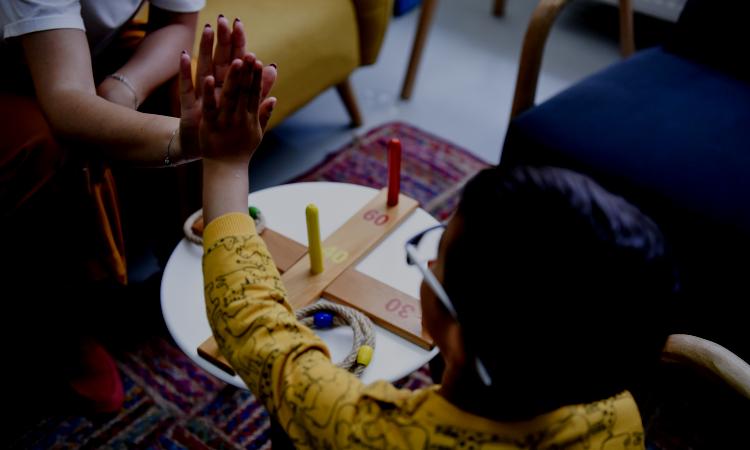The “Applying Safe Behaviours” project aims to empower children and young people from vulnerable backgrounds to become active agents in creating a safe environment for themselves and their peers, as well as to enable professionals who work with and care for them to respond appropriately to peer violence. The activities focus on the prevention of and response to all forms of peer-to-peer violence among children and young people, including gender-based violence.
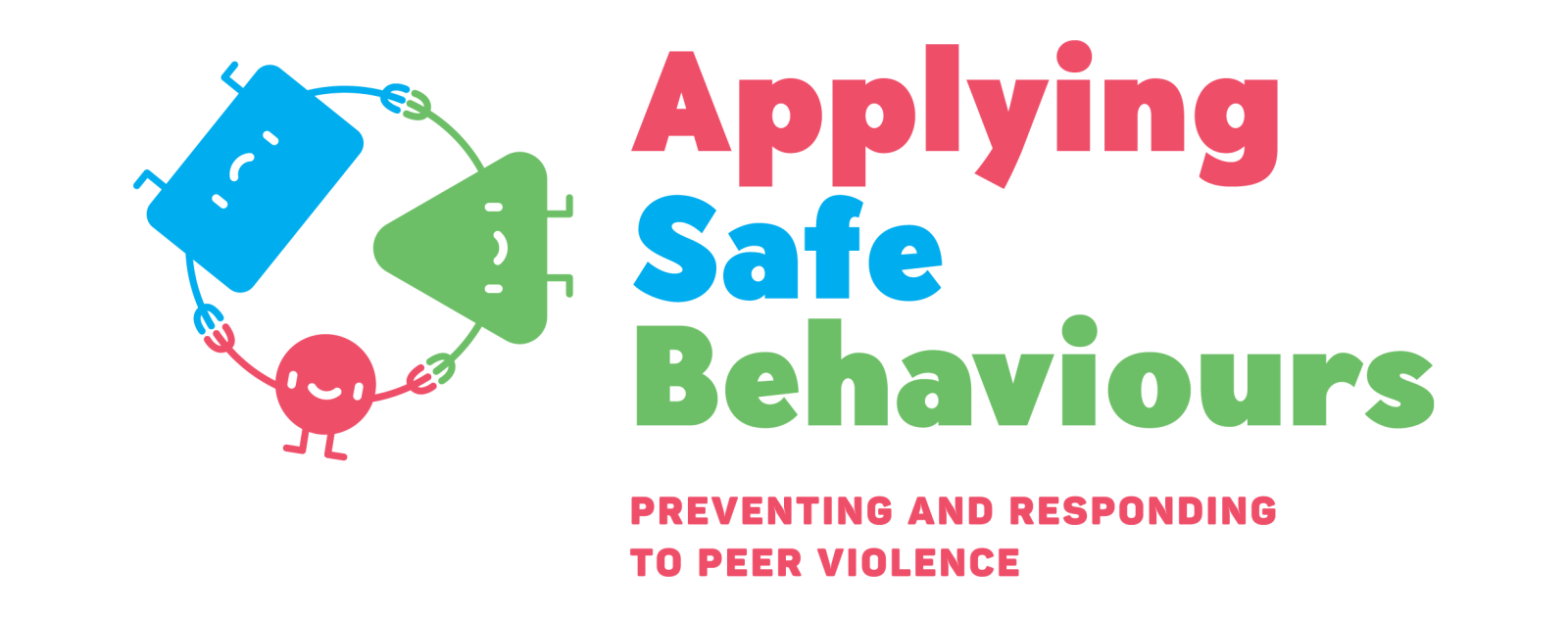
Why do children and young people need “Safe Behaviours”?
Peer-to-peer violence is one of the most common ways in which children and young people experience violence: in Europe, almost 1 in 3 students report being bullied at school (30.1% of boys; 28.2% of girls) (UNESCO, 2019). For children and young people from vulnerable backgrounds, the risk of experiencing peer violence is even higher than for others. Unfortunately, despite the widespread prevalence of peer violence among children and young people, adults and professionals who care for and work with them often face challenges in responding effectively.
The “Applying Safe Behaviours” methodology focuses on children’s right to feel safe at all times, the development of self-confidence and resilience, as well as the importance of acceptance and understanding. Through training and informing children, young people, and professionals on peer violence, as well as through advocacy and awareness-raising actions directed at the wider community and public authorities, the project aims to provide them with the knowledge, skills, and tools needed to understand this issue and take action against it.
Children and young people will be able to apply the “Safe Behaviours” approach in their lives, contributing to the creation of a safer environment for themselves and their peers, while professionals who care for and work with them will gain increased knowledge and capacity to prevent, identify, and respond appropriately to peer violence.
Project Beneficiaries
Through the project’s activities, vulnerable children and young people, as well as the adults and professionals who care for and work with them, will be engaged in Bulgaria, Italy, Kosovo, Romania, and Sweden. Advocacy and awareness-raising actions, both at the national and EU level, will also reach a wider audience, including additional children and young people, professionals working with them, policymakers, public authorities, and the general public.
Key Project Activities
Peer-to-peer workshops for children aged 11–15, providing knowledge on what peer violence is, why it happens, how it can be prevented, and what they can do to protect themselves and others. These workshops are led by young people aged 17–24, trained as Peer Trainers.
Design and implementation of change projects by the children participating in the workshops, enabling them to share what they have learned with their communities, helping to raise awareness and strengthen prevention and response to peer violence.
Face-to-face training sessions for professionals who work with and care for children and young people, equipping and empowering them to prevent, identify, and respond to peer violence in a balanced, safe, and caring manner, ensuring the best interests of every child.
Awareness-raising workshops for children, young people, and adults to explain what peer violence is, how it can be prevented, and how to support those who have been affected.
Development of practice-based guidelines for local, regional, and national social services on the best ways to identify, prevent, and respond to peer violence.
Dissemination of policy recommendations at national and EU levels on the necessary changes in both legal frameworks and practice, to ensure an informed, preventive, responsive, and combative approach to peer violence is embedded within child protection systems.
Project Partners
SOS Children’s Villages International
SOS Children’s Villages Bulgaria
SOS Children’s Villages Italy
SOS Children’s Villages Romania
SOS Children’s Villages Sweden
Terre des hommes Lausanne in Kosovo
Terre des hommes Hungary – Regional Hub for Europe
Associated Partners:
European Social Network (ESN)
International Society for the Prevention of Child Abuse & Neglect (ISPCAN)
SOS Children’s Villages Kosovo
SOS Kinderdörfer weltweit – Hermann-Gmeiner-Fonds Deutschland
Project Duration: April 2025 – February 2027
For more information please visit: Applying Safe Behaviours: Preventing and Responding to Peer Violence and Gender-Based Violence Amongst Vulnerable Children and Young People (2025-2027)

